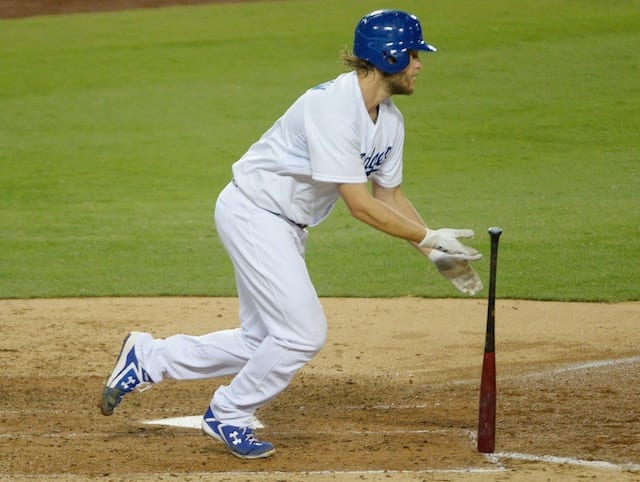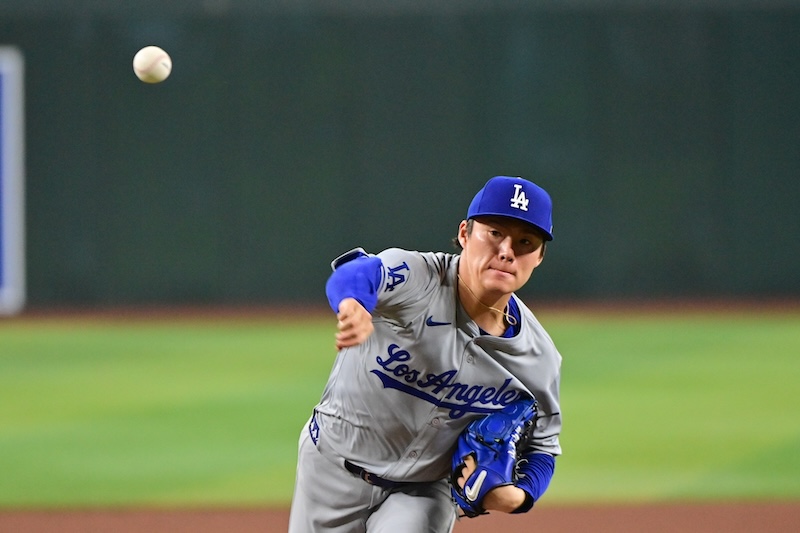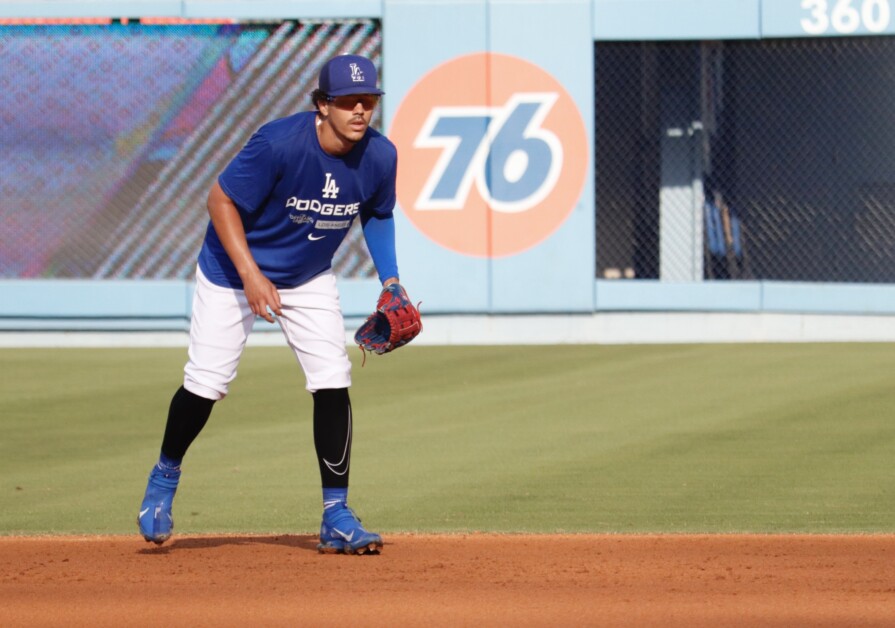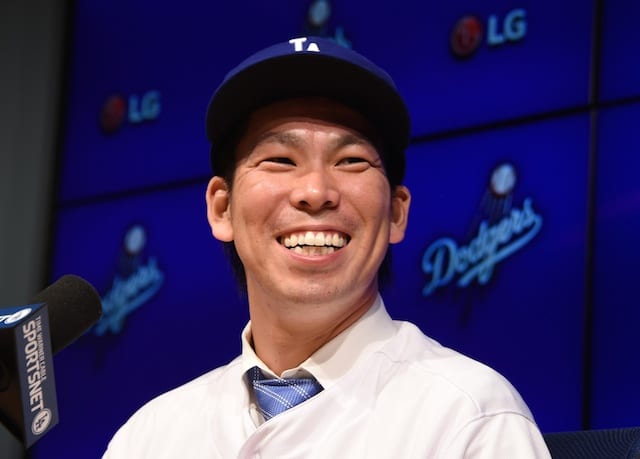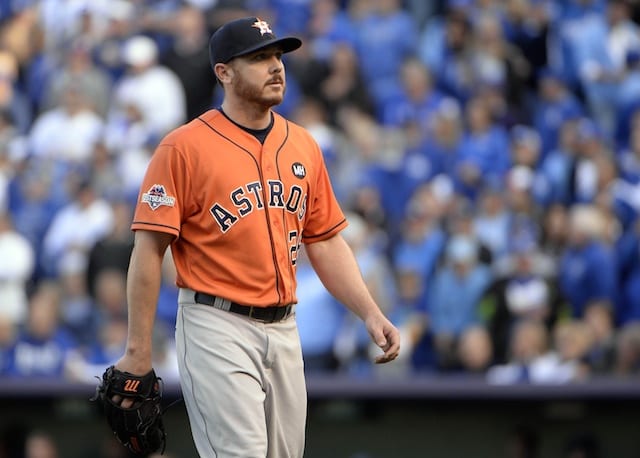
PAGES: 1 | 2
Kazmir also hits the Andrew Friedman/Farhan Zaidi exacta, having played in both Tampa Bay and Oakland.
The lefty isn’t the power pitcher he once was, but now has a deep repertoire and misses enough bats to provide above average value in the rotation.
He throws a four-seam fastball, two-seamer/sinker, cutter, curveball, slider and changeup. With that much variety, there is room to become inconsistent in his approach.
After being traded to Houston, his sinker and changeup usage dropped, which could have been what led to him allowing eight home runs in September.
A three-year deal for his age 32-34 seasons seems like it could pay off, with an opt-out clause after the first year if he pitches well. If Kazmir does elect free agency and isn’t re-signed after 2016, the Dodgers likely would make the qualifying offer and net a high draft pick if he declines and signs elsewhere.
The club has made long-term offers to high-profile free-agent starters, but seems more comfortable with short-term solutions. Friedman and Zaidi are betting on the likes of Jose De Leon and Julio Urias to become rotation fixtures in the near future, so not clogging the pitching staff with starters in their mid-30s on long-term deals certainly makes sense.
Let’s be clear: Kazmir is not replacing Zack Greinke. He’s joining the team to stabilize the rotation in the short term. Both Steamer and ZIPS, two forecasting systems, have him being above average in 2016.
ZIPS is particularly high on him, predicting a 3.3 fWAR, which would be his highest mark since 2007. The Dodgers’ front office continues to put an emphasis on depth, which cannot be ignored. Some may have taken for granted the 92 games the Dodgers won last season, assigning the bulk of the credit to Clayton Kershaw and Greinke.
However, the team had 1,196 total games missed due to player injury in 2015 — fifth most in the Majors. It was signings of Brett Anderson and Mike Bolsinger that held the rotation together despite Brandon McCarthy nearly missing the entire season, and Hyun-jin Ryu not making a single start.
While the Dodgers have signed or expressed interested in veterans, the dictate seems to be clear: keep the roster flexible in the near-term for the team’s young, elite prospects. This isn’t necessarily rebuilding, it’s more rejuvenating an older roster.
Remember, the plan isn’t simply to compete next year, but every year for the foreseeable future.
You can listen to Jared Massey on the weekly Dugout Blues Podcast.



